Best 5 Agoric Alternatives in 2025
Blockchain technology is evolving at a breakneck pace, offering new and innovative solutions for businesses and individuals alike. One of the most exciting areas of development is in cross-chain innovation, which allows different blockchain networks to interact with one another seamlessly. While Agoric has been a popular choice for many, it's always good to explore alternatives that might better suit your needs.
In this post, we'll introduce you to the top 5 Agoric alternatives in 2024. We'll cover their features, benefits, and pricing to help you make an informed decision. Whether you're a tech enthusiast, small business owner, startup founder, or cryptocurrency aficionado, this guide will provide valuable insights into the best blockchain platforms available today.
5 Agoric Alternatives in 2024
1.Arcana.Network
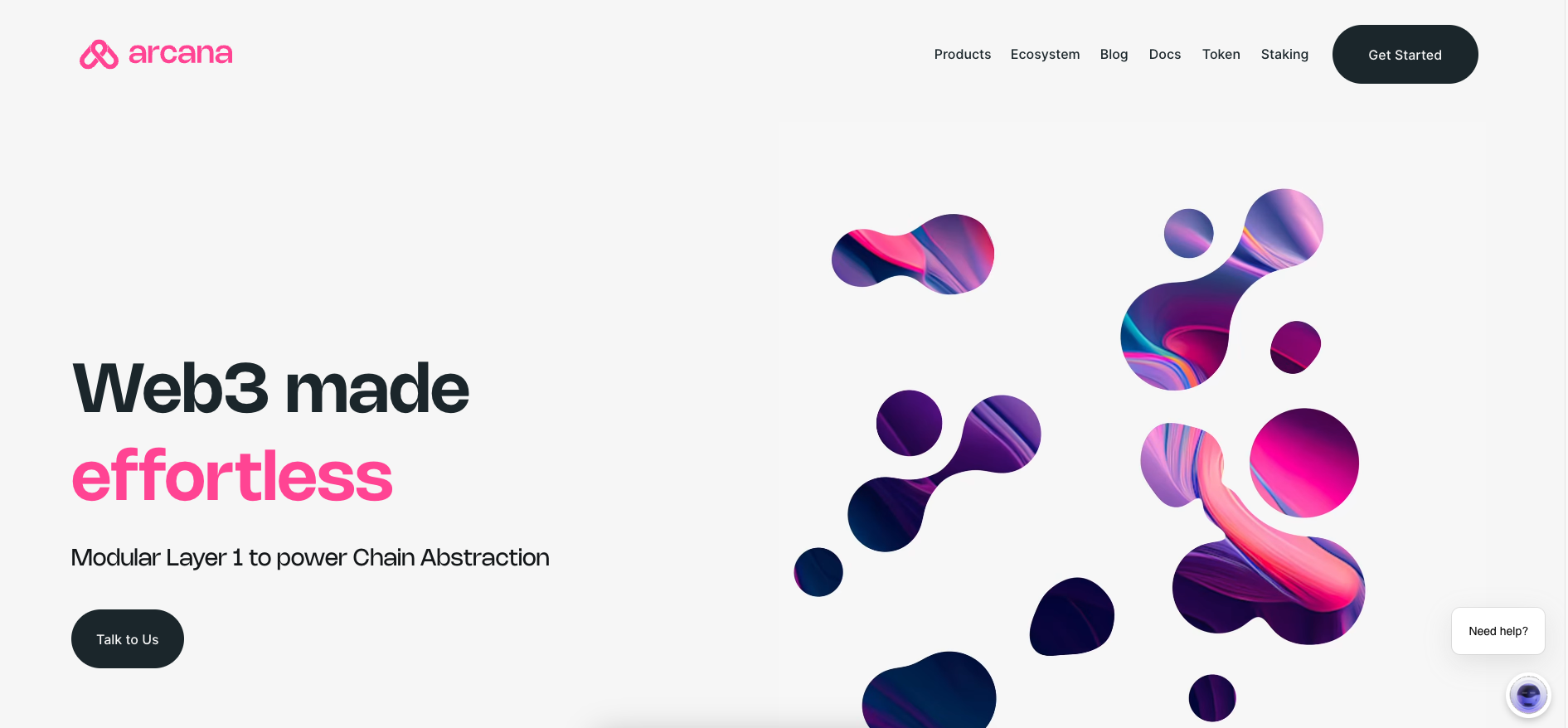
Arcana Network is designed to simplify the creation and deployment of decentralized applications (dApps). Built with a focus on privacy and security, Arcana offers a comprehensive suite of tools for developers.
Features
- Privacy-focused: Arcana provides robust privacy controls, ensuring that only authorized users can access your data.
- Easy Integration: With Arcana, you can easily integrate decentralized storage, identity management, and access control into your dApps.
- Developer-Friendly: The platform offers extensive documentation, SDKs, and APIs to make the development process as smooth as possible.
Pricing
Arcana Network offers a tiered pricing model, starting with a free tier for individual developers and small projects. Paid plans are available for larger enterprises, with custom pricing based on specific needs.
2.Acala
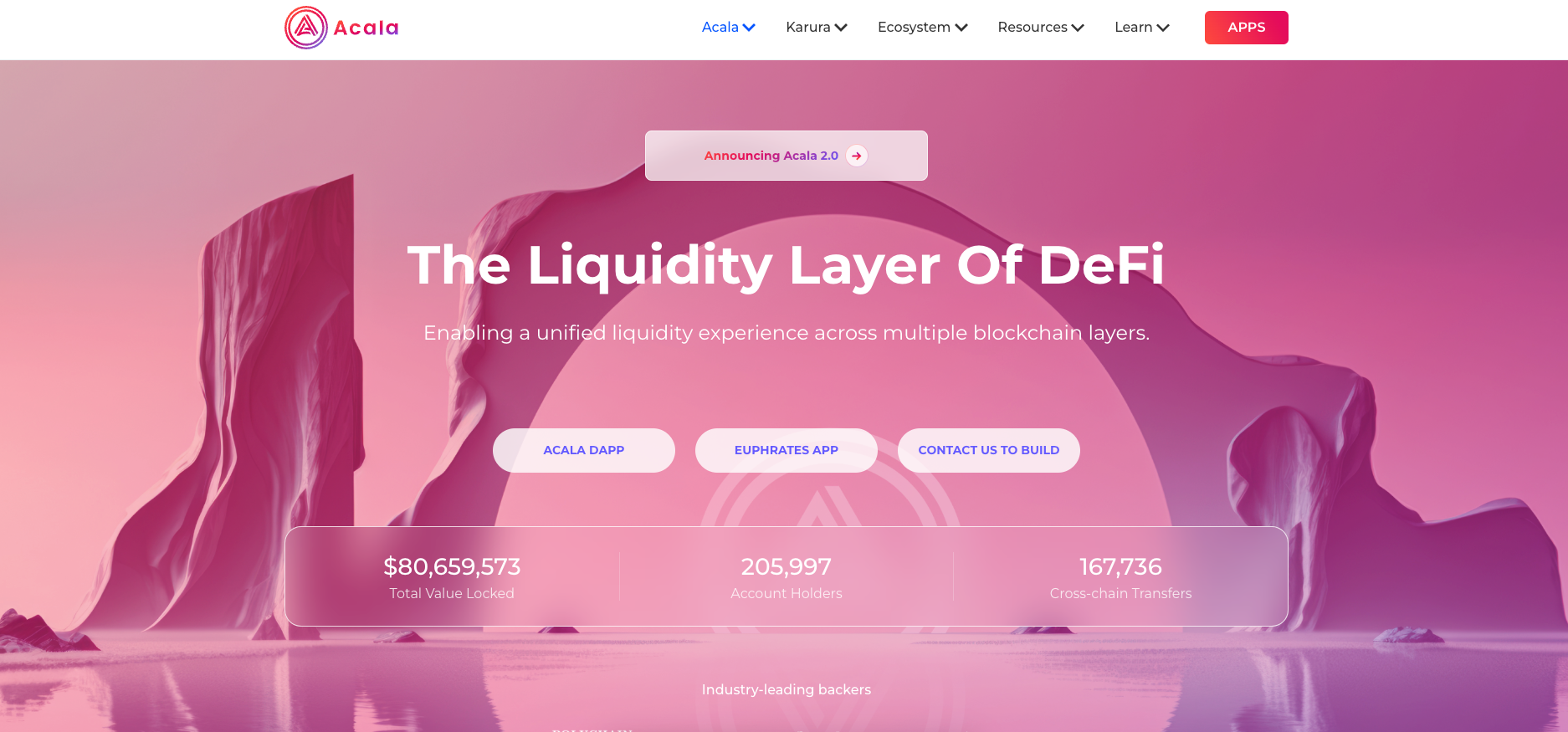
Acala is a decentralized finance (DeFi) platform that seamlessly integrates with both Ethereum and Polkadot. It aims to provide a scalable and flexible environment for developing DeFi applications.
Features
- Ethereum Compatibility: Acala supports Ethereum-compatible smart contracts, allowing you to leverage existing Ethereum tools and frameworks.
- Built-in DeFi Tools: The platform offers a range of DeFi tools, including a decentralized exchange (DEX), aUSD stablecoin, and DOT Liquid Staking.
- Cross-Chain Capabilities: Acala enables you to access assets and liquidity across multiple blockchains, enhancing the versatility of your dApps.
Pricing
Acala operates on a pay-as-you-go model, charging transaction fees in the form of Acala tokens (ACA). This makes it cost-effective for both small and large-scale projects.
3.Shiden Network
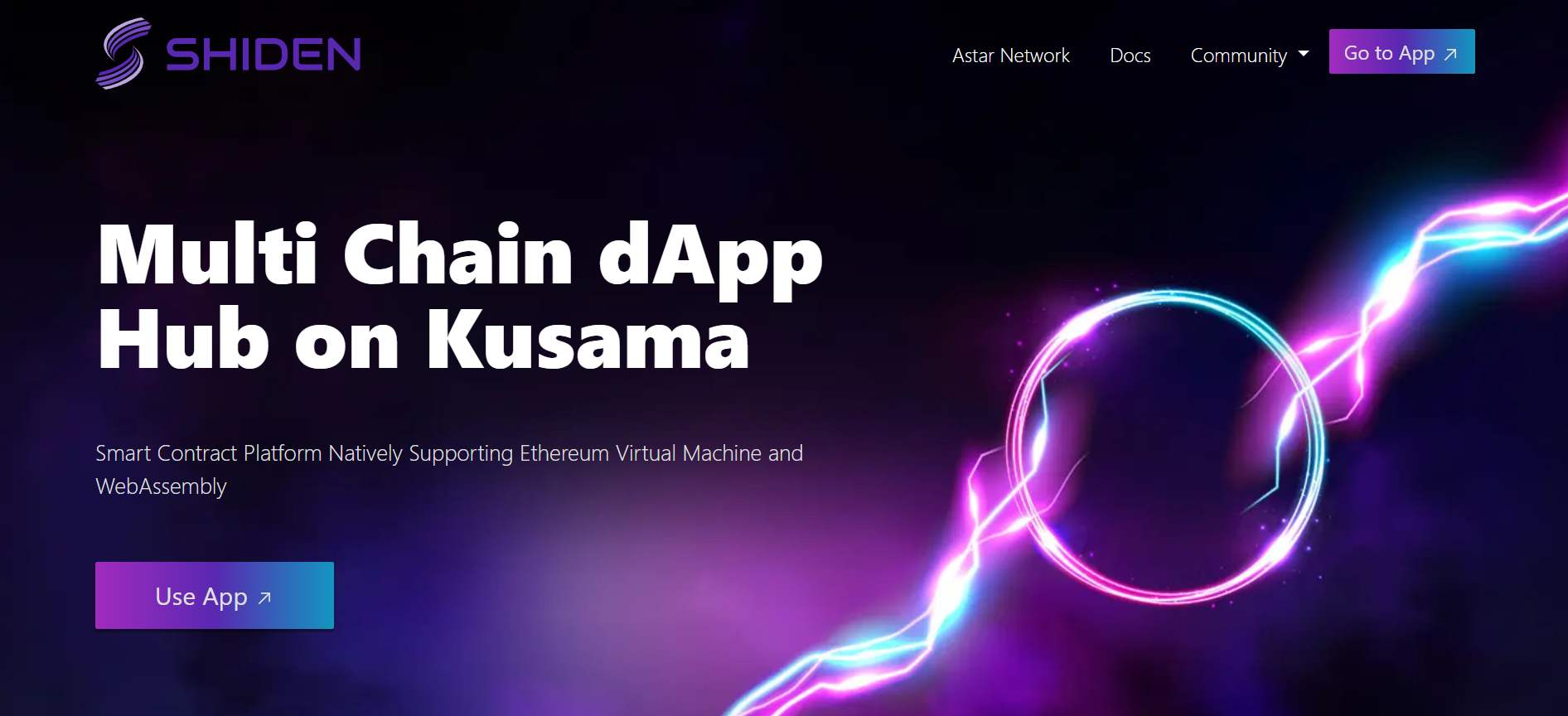
Shiden Network serves as the smart contract layer for the Kusama network, which doesn't natively support smart contracts. It's designed to support a wide range of applications, from NFTs to DeFi.
Features
- Multichain Support: Shiden supports multiple blockchain protocols, including Ethereum Virtual Machine (EVM) and WebAssembly (WASM).
- Incentive Mechanism: SDN token holders can earn rewards by staking their tokens on preferred dApps.
- Versatile Development: Developers can build smart contracts using either traditional Ethereum tools or Solang, a Solidity-to-WASM compiler.
Pricing
Shiden Network uses a token-based pricing structure, with SDN tokens required for deploying and interacting with smart contracts. The costs are competitive, making it accessible for various project sizes.
4.Meter
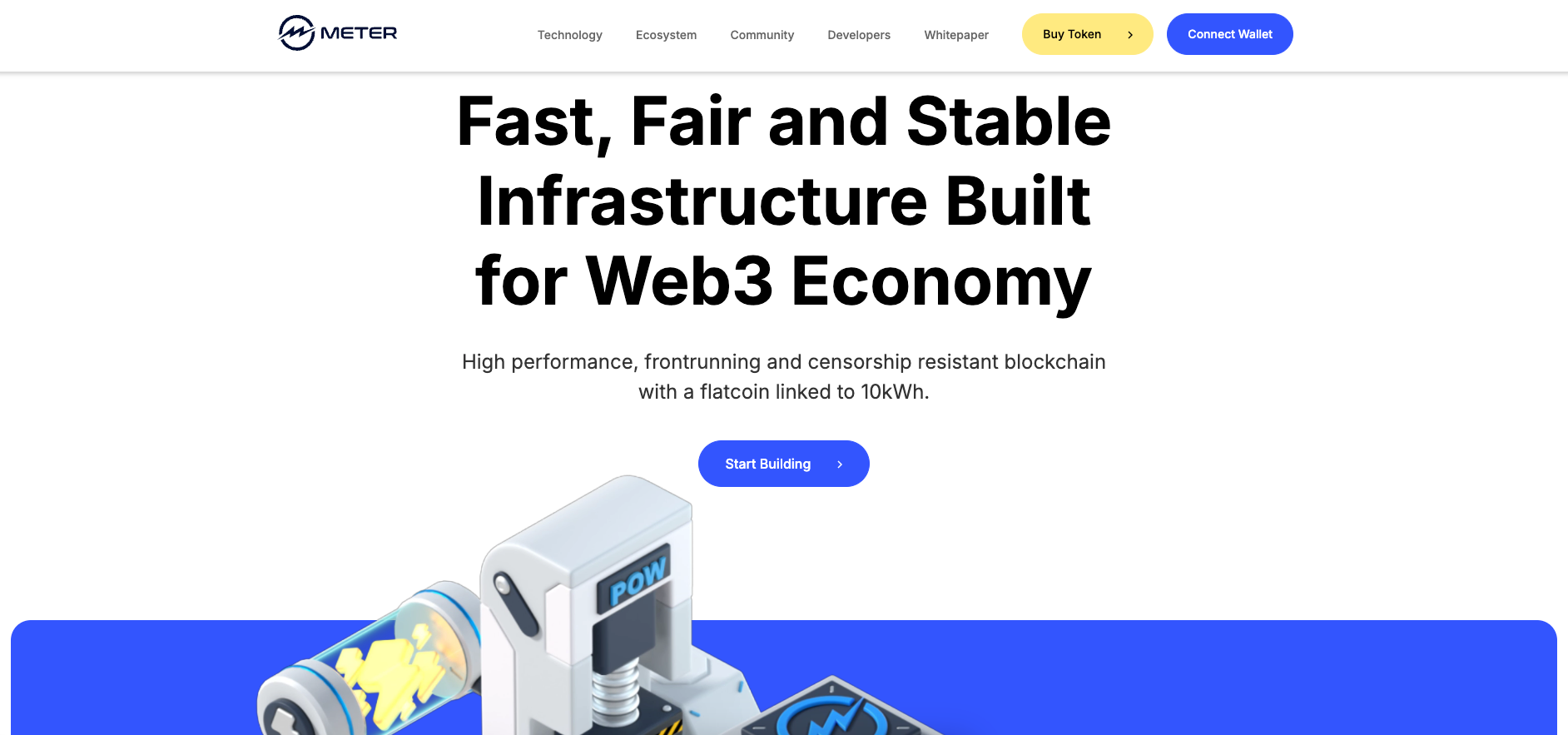
Meter is a high-performance blockchain protocol designed to scale smart contracts and enable seamless interoperability between different blockchain networks.
Features
- Layer 1 and Layer 2 Support: Meter offers both Layer 1 and Layer 2 solutions, providing flexibility for different use cases.
- Fast and Secure: The platform uses a HotStuff-based consensus mechanism, enabling thousands of transactions per second with near-instant finality.
- Cross-Chain Compatibility: Meter's Passport feature allows assets and smart contracts to move freely between heterogeneous blockchains.
Pricing
Meter operates on a dual-token system, with MTRG and MTR tokens used for governance and transaction fees, respectively. This ensures a balanced and efficient pricing model.
5.Chainlink
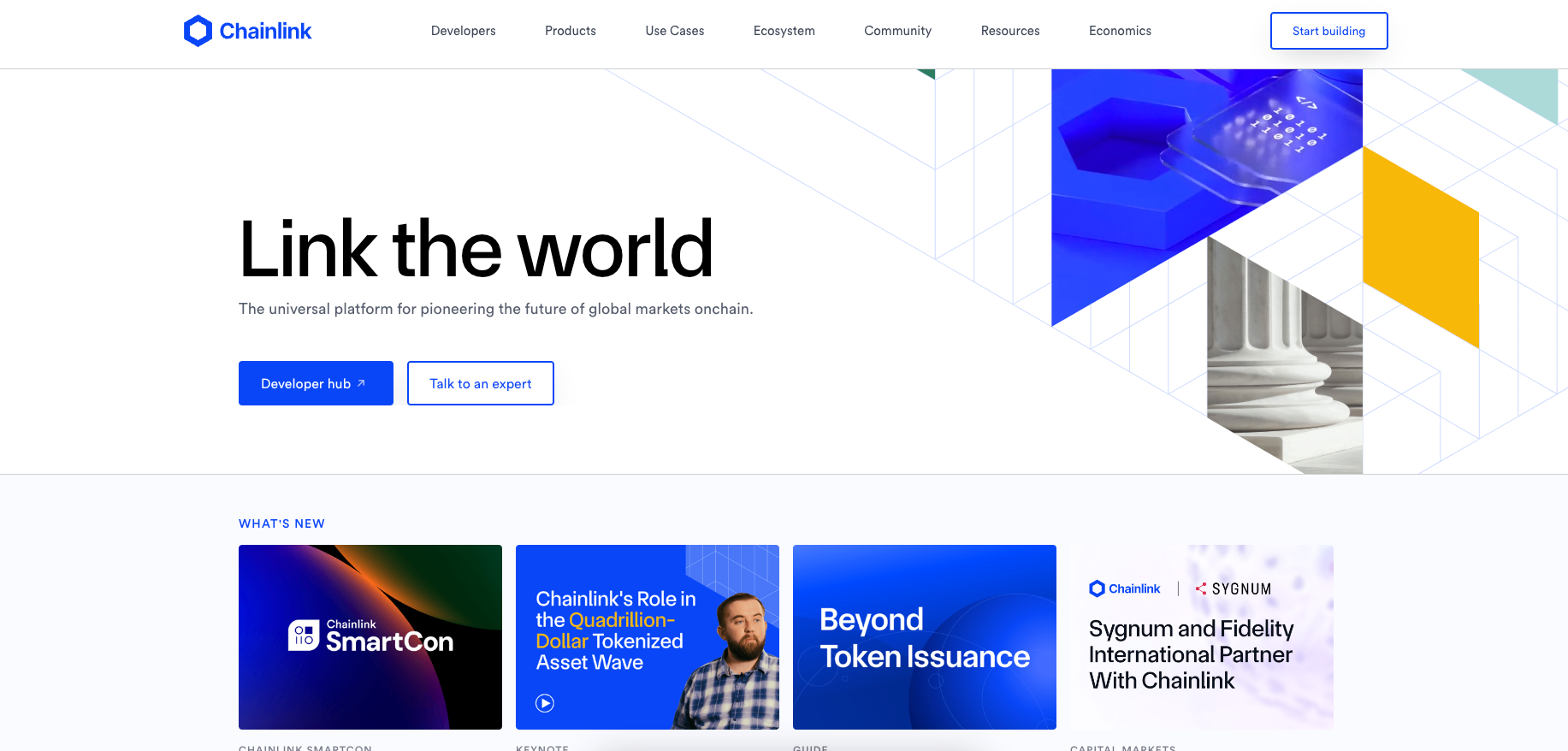
Chainlink is a decentralized oracle network that connects smart contracts with real-world data, making it one of the most versatile tools for blockchain developers.
Features
- Decentralized Oracles: Chainlink's oracles provide reliable, tamper-proof data feeds for smart contracts.
- Wide Compatibility: The platform supports integration with any blockchain, making it highly versatile.
- Trusted Nodes: Chainlink uses a network of trusted nodes to ensure data accuracy and reliability.
Pricing
Chainlink operates on a per-request pricing model, with costs varying based on the complexity and frequency of data requests. This makes it adaptable for projects of all sizes.
Conclusion
Choosing the right blockchain platform is crucial for the success of your projects. Each of the alternatives to Agoric we've discussed offers unique features and benefits, catering to different needs and use cases. Whether you're looking for enhanced privacy, cross-chain capabilities, or high-performance infrastructure, there's a solution out there for you.
By exploring these top 5 Agoric alternatives—Arcana Network, Acala, Shiden Network, Meter, and Chainlink—you'll be well-equipped to make an informed decision that aligns with your goals. Each platform brings something unique to the table, ensuring that you have the tools you need to stay ahead in the rapidly evolving world of blockchain technology.
Ready to take the next step? Sign up for a free trial of these platforms and see firsthand how they can transform your blockchain projects. The future of blockchain is here—don't miss out!
Take Control of Your Digital Assets! 🔥
Arcana Wallet offers a secure and private way to manage your Web3 world. Sign Up Today

